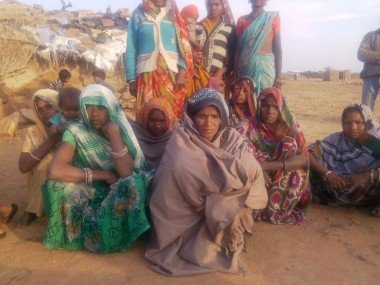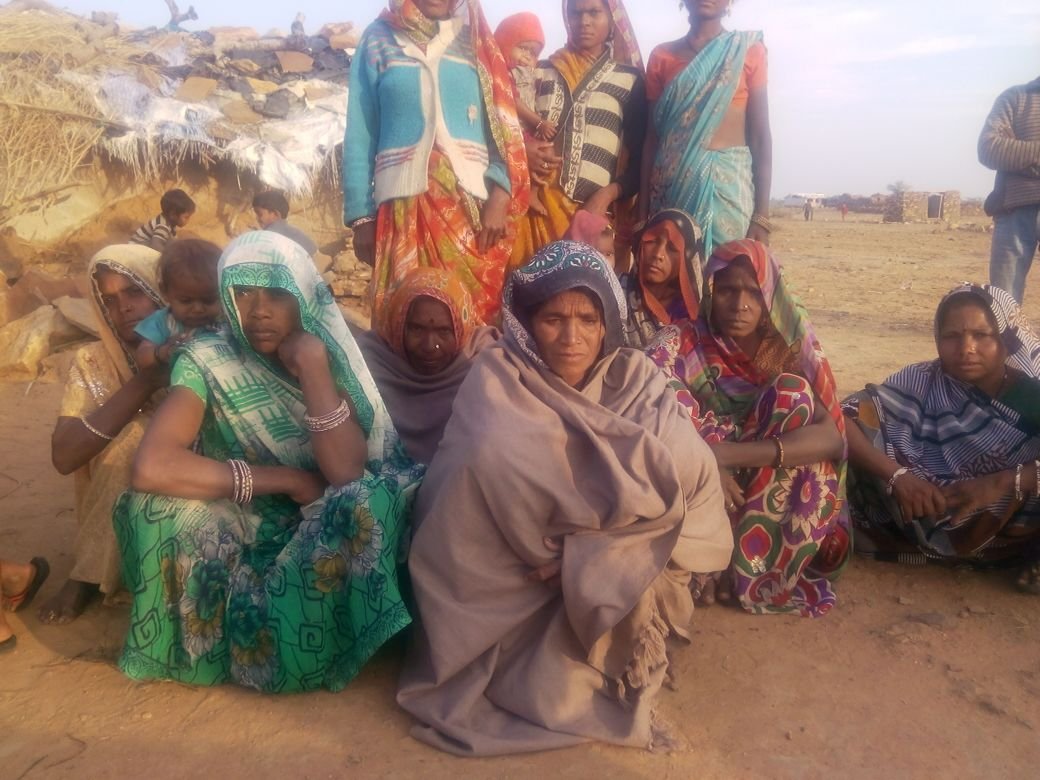Articles features
In Rajasthan, women of Sahariya tribe victims of apathy, ignorance

Baran (Rajasthan), Feb 24
With her eyes half
open, an extremely anemic Dhanno is lying nearly unconscious on a
hospital bed. Her hemoglobin level has plummeted to 2.5 which is far
below the normal 12 to 15 count.
"She is not ready to be taken to
the district hospital where better treatment is available," a doctor at
the Community Health Centre in Baran, some 280 km from Rajasthan
capital Jaipur, told this visiting IANS correspondent.
How so?
"That's
how Sahariya women are. They are ignorant. And their husbands, most of
whom are alcholics, couldn't care less," the doctor shrugged.
The
Sahariya tribe is the most backward of the desert state whose members,
especially the women, have lived a life of penury and neglect.
This
IANS correspondent visited several villages in Baran district, which
has about 125,000 Sahariyas, who came into the limelight after a string
of starvation deaths in 2002.
Nearly every Sahariya women IANS
met looked anaemic and malnourished. Many claimed their contemporaries
lost their lives during labour.
Kamli Bai of Kariria village was one such who died in November 2013 in the Primary Health Centre on the day of her delivery.
"She
was already weak and crying in pain. She was not attended for two
hours. And finally she died," Mukesh, her distraught brother-in-law,
told IANS.
"The medical report said she died due to blood loss. But it was doctors' negligence which claimed her life," he added.
Until
a couple of years ago, Sahariyas worked as halis (a regional term for
bonded labour) in the fields of rich farmers. NGOs claim some still work
as hali.
Kamla, who seems to be in her 40s, was freed only after government intervention.
"My
family and I would work for almost 15 hours every day in the field. In
lieu of it, we would get 20 kg wheat flour," Kamla told IANS.
"Though
the government has brought us out of slavery, they need to rehabilitate
us. Sometimes it's difficult for us to get ration," she added.
"Almost
every woman of this tribe is anaemic. It's natural in their case since
they work during their pregnancy," a doctor at the Community Health
Centre in Kishanganj block of Baran district, told IANS.
"They are forced to work as their husbands waste money on alcohol," he added.
A senior doctor who has worked in the region since 1994 says government health centres are in bad shape.
"Anganwadis are in poor condition. Many don't function for months. They are also not monitored," he added.
Anganwadis
cater to children in the 0-6 age group and provide outreach services to
poor families in need of immunization and healthy food.
"In fact, officials who come from Jaipur are aware of this but nothing happens" the doctor added.
Firoze
Khan, a local journalist who has extensively reported on the tribe,
said that the Sahariyas are also to be blamed for their plight.
"They
don't reach hospitals till their condition becomes serious. They are
ignorant and utterly careless. This is because they are illiterate,"
Khan told IANS.
Alcohol addiction among Sahariya men is also a problem, he added.
"Sahariyas don't much care about their lives as they have seen so much that they have become numb," Khan said.
(Gaurav
Sharma can be contacted at gaurav.s@ians.in. This story is part of a
National Media Fellowship awarded by the National Foundation for India
in association with World Vision India)




































